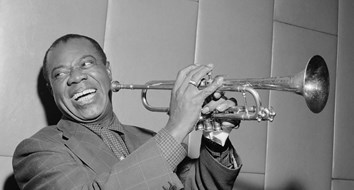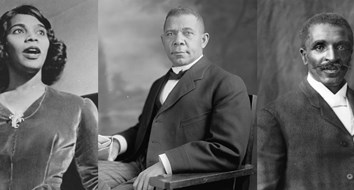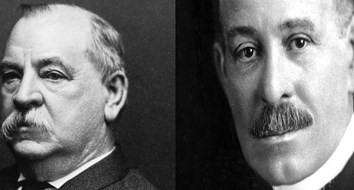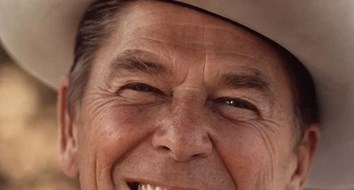For this Christmas, I realized I couldn’t say any better to friends of FEE what’s been said by many others before. So for this article, I’m pretty much just the narrator.
Let’s begin by acknowledging that in the midst of all the lights and festivities, Christmas is about Christ. There wouldn’t be a Christmas without Him. That’s true whether you are a person of faith, a different faith, or no faith at all. We can all join in and share together much of the Christmas message.
The Spirit of Christmas
“Christmas means a spirit of love,” wrote the 19th-century Methodist missionary George F. MacDougall. To him, it was “a time when the love of God and the love of our fellow men should prevail over all hatred and bitterness, a time when our thoughts and deeds and the spirit of our lives manifest the presence of God.”
A godly man and one of our best American presidents, Calvin Coolidge, advised the country, “Christmas is not a time nor a season, but a state of mind. To cherish peace and goodwill, to be plenteous in mercy, is to have the real spirit of Christmas.”
That spirit is expressed well in these Christmas gift suggestions from novelist and journalist Oren Arnold: “To your enemy, forgiveness. To an opponent, tolerance. To a friend, your heart. To a customer, service. To all, charity. To every child, a good example. To yourself, respect.”
The trees we decorate this time of year are often the physical centerpiece of celebration, but clergyman Roy L. Smith cautioned that “He who has not Christmas in his heart will never find it under a tree.” Author Burton Hillis reminds us that “The best of all gifts around any Christmas tree is the presence of a happy family all wrapped up in each other.”
“Our hearts grow tender with childhood memories and love of kindred, and we are better throughout the year for having, in spirit, become a child again at Christmas time.”
My fellow old-timers will no doubt remember the old Little House on the Prairie series by Laura Ingalls Wilder, who wrote, “Our hearts grow tender with childhood memories and love of kindred, and we are better throughout the year for having, in spirit, become a child again at Christmas time.”
Christmas brings us a wealth of wonderful music, so distinctive that we call them “carols.” One of the better-known was inspired by these words of the great American poet Henry Wadsworth Longfellow: “I heard the bells on Christmas Day. Their old, familiar carols play. And wild and sweet, the words repeat, of peace on earth, good-will to men!”
Make room at this time of year for some good, clean humor, too. It goes hand-in-hand with the joy of the season. For example:
“I once bought my kids a set of batteries for Christmas with a note on it that said, Toys Not Included.” – British comedian Bernard Manning.
A man bought his wife a beautiful diamond ring for Christmas. After hearing about this extravagant gift, a friend of his said, “I thought she wanted one of those sporty four-wheel-drive vehicles.” The man replied, “She did. But where was I going to find a fake Jeep?”
And this one from the late child actress Shirley Temple: “I stopped believing in Santa Clause when I was six. Mother took me to a department store and he asked me for my autograph.”
Christmas and Capitalism
You can’t give a gift if you haven’t first produced it or traded for it. Christmas presents don’t magically materialize without the application of capital to labor and physical resources.
From TV show host Craig Ferguson comes this remark that may give you pause: “I think commercialism helps Christmas and I think that the more capitalism we can inject into the Christmas holiday the more spiritual I feel about it.” Before you dismiss what Ferguson said as out of sync with the Christmas message, consider these points 1) Jesus was no socialist; 2) Capitalism is the greatest poverty cure to ever bless the world; 3) Voluntary and peaceful exchange for mutual benefit is a major source of personal fulfillment, and 4) You can’t give a gift if you haven’t first produced it or traded for it. Christmas presents don’t magically materialize without the application of capital to labor and physical resources.
Finally, let’s reiterate that the spirit of the holiday isn’t just for a single day, December 25. It was the reformed Ebenezer Scrooge in Charles Dickens’s A Christmas Carol who humbly vowed, “I will honor Christmas in my heart, and try to keep it all the year.”
All of us at the Foundation for Economic Education wish all of you the very merriest of Christmases!





